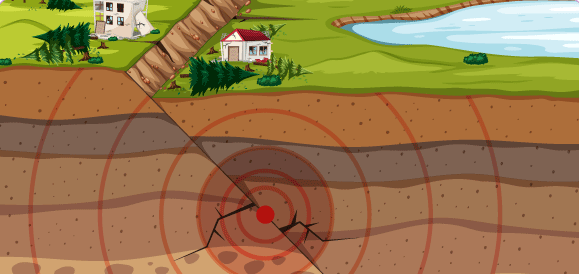Table of Contents
ToggleRecent Earthquakes Intro:
Temblores recientes, or recent earthquakes, serve as stark reminders of the Earth’s dynamic and unpredictable nature. These seismic events can have devastating consequences, affecting communities, infrastructure, and ecosystems. In this blog post, we’ll delve into the phenomenon of recent earthquakes, exploring their causes, impacts, and the importance of preparedness in mitigating their effects. Earthquakes, or “temblores recientes” in Spanish, are natural phenomena that have shaped the Earth’s surface for millions of years. These seismic events, characterized by the sudden shaking or trembling of the ground, can occur with little warning, leaving devastation in their wake. In recent times, the world has witnessed several significant earthquakes that have highlighted the urgency of understanding and preparing for these natural disasters.
Understanding Recent Earthquakes:
Recent earthquakes, characterized by sudden shaking or trembling of the ground, occur when there is a release of energy along geological faults or plate boundaries. These seismic disturbances can range in magnitude from minor tremors to catastrophic quakes, with the potential to cause widespread destruction and loss of life.
- Causes of Recent Earthquakes: Recent earthquakes are primarily caused by the movement of tectonic plates beneath the Earth’s surface. When these plates collide, slide past each other, or diverge, stress builds up along fault lines, eventually leading to sudden release in the form of seismic waves. Other factors such as volcanic activity, human-induced activities like mining or reservoir-induced seismicity, can also trigger earthquakes.
- The Nature of Recent Earthquakes: Recent earthquakes are geological events resulting from the release of energy stored within the Earth’s crust. This energy release occurs along fault lines or plate boundaries, where tectonic plates interact. The sudden movement of these plates causes seismic waves to propagate through the Earth, resulting in ground shaking and displacement.
- Impacts of Recent Earthquakes: The impacts of recent earthquakes can be profound and far-reaching, affecting various aspects of life and livelihoods. These may include:
- Structural damage to buildings, bridges, and infrastructure
- Loss of life and injuries
- Displacement of communities and destruction of homes
- Disruption of essential services such as water, electricity, and transportation
- Environmental impacts such as landslides, tsunamis, and soil liquefaction
- Preparedness and Mitigation Strategies: While it is impossible to predict exactly when and where an earthquake will occur, preparedness and mitigation efforts can help reduce the risk and impact of seismic events. Governments, communities, and individuals can take proactive measures such as:
- Developing and enforcing building codes and standards to ensure structural resilience
- Educating communities about earthquake hazards and preparedness measures
- Establishing early warning systems to provide timely alerts and evacuation procedures
- Conducting seismic retrofitting of critical infrastructure and lifeline systems
- Investing in research and monitoring to better understand earthquake behavior and improve forecasting capabilities
Conclusion:
Temblores recientes serve as a sobering reminder of the Earth’s dynamic and ever-changing nature. By understanding the causes, impacts, and preparedness measures associated with earthquakes, we can better equip ourselves to mitigate their effects and build more resilient communities. In the subsequent sections of this blog post, we will delve deeper into the various aspects of recent earthquakes, exploring their impacts on different sectors and regions, as well as strategies for enhancing resilience and preparedness.
Let us embark on this journey to understand and navigate the seismic challenges of our planet together. While recent earthquakes can cause widespread devastation and loss, proactive preparedness and mitigation efforts can help reduce their impact and save lives. By understanding the causes of recent earthquakes, implementing effective preparedness measures, and fostering resilience in our communities, we can better adapt to the seismic challenges of our planet and build a safer, more resilient future for all.




